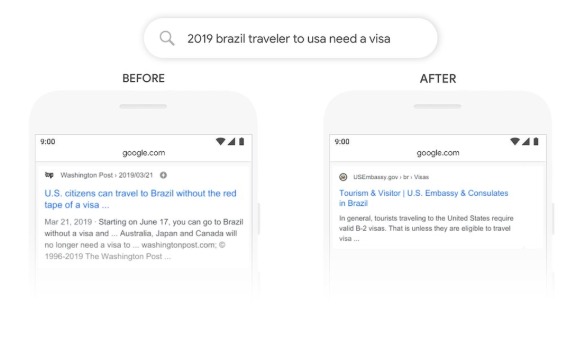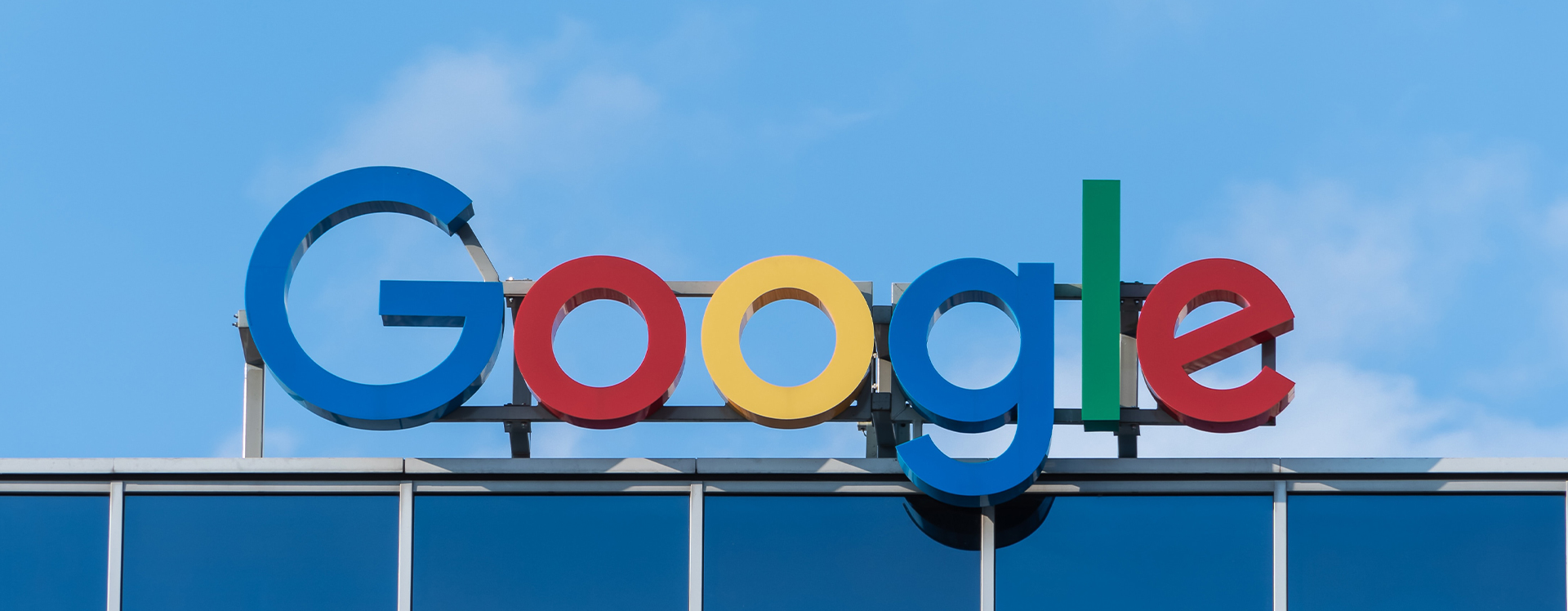2019 was a big year for Google search. Google set into place multiple updates cementing its transformation from a mere search engine to a content curator for the modern user. Powering this shift is Google’s complex search algorithm and ranking system, which, to the dismay of many SEOs, is generally shrouded in mystery. Starting June 2019, Google began the release of three of these mysterious algorithm updates, which have refined its search algorithm in multiple ways. These updates all boil down to three main points: alterations in visibility in search results (the Diversification Update), prioritization of results by website trustworthiness (the Listing Update), and finally, relevance of search results according to conversational search queries (BERT).
GOOGLE DIVERSIFICATION
In June 2019, Google introduced an update aimed at diversifying what content users see in search results. I’m sure you have made a Google search only to find that one domain has a monopoly on the search results, in some cases leading you to the second or third page. This fact, and the likely complaints from various SEOs, drove Google to introduce this update, which aims to show no more than two results from the same domain for any given Google search.
This, however, is not a set rule. Google states “we may still show more than two in cases where our systems determine it’s especially relevant to do so for a particular search.” So, if Google deems that the user experience will be heightened by showing multiple results from the same domain (i.e. from searches containing specific brand name queries) you could still see the same website popping up multiple times.
PRIORITIZATION OF TRUSTWORTHY WEBSITES
Apart from diversifying search results, the June 2019 core algorithm update centered on boosting Google search ranking for sites based on trustworthiness. Generally, this resulted in the boost in ranking for established aggregator sites (think Yelp.com or Yellowpages.com) that Google deems trustworthy. This update is not a huge surprise. In the past, Google has released information on a trust metric called “TrustRank”, which helps them and other search engines combat web spam.
These updates come as Google has begun to put a larger emphasis on providing users with the information they seek safely and securely. Factors that go into how Google determines the trustworthiness of a site include outgoing links to authoritative/established sites, an established “Contact Us” page, social media links, and more.
ENTER “BERT”
After ensuring users would be provided with diverse and trustworthy search results, Google had to tackle the rise of “conversational” searches. Every day Google receives billions of searches. Of those billions, 15 percent are among a select group of words that have never been inputted into Google in that specific order. I’m sure you’ve been in a situation where you’ve filled your search with disjointed words, crossed your fingers, pressed enter and hoped Google’s magic would bring you to the perfect article or site. Google searches containing natural language are on the rise and because Google has become a standard first touch point for obtaining new knowledge, relevance is more important than ever. Enter BERT, Google’s search update that stands for Bidirectional Encoder Representations from Transformers. Essentially, this is a Google search algorithm update which utilizes machine learning and advanced natural language processing techniques to show you the name of that one actor in the movie you vaguely remember from three years ago.
Google says that by applying BERT, they’re able to “do a much better job helping you find useful information. In fact, when it comes to ranking results, BERT will help Search better understand one in 10 searches in the U.S. in English” What this means for SEOs is that Google will be able to understand more “conversational” searches, specifically those that contain prepositions such as “for” or “to”.
A prime example of this was provided by Google. In the example below, BERT updates have allowed Google’s algorithm to understand that the intent of the search “2019 brazil traveler to usa need a visa” is dependent on the “to” in the search. Because the searcher included “to Brazil” BERT updates have led the user to information regarding visas for travelers to the usa, reducing research time and improving user experience.

When it comes to the modern SEO landscape, two things are true. First of all, Google is King. You don’t own 92% of the search engine market share worldwide, without getting to make a few rules. Second, to keep up with modern SEO practices, sites must be optimized for natural language queries, which can be accomplished by writing content with users top of mind. Google may be king, but content is Queen.
So what can you actually do? The key to ruling the SERPS (Search Engine Results Pages) moving forward is to cover all your bases when it comes to connecting your brand to all relevant content. This can be accomplished by increasing link diversity, brand popularity (think reviews, social followers, etc.), content relevance, and, of course, continuing to improve the technical performance of your site (duplicate/missing metadata, broken links, page speed, and more).
Feel free to reach out with any questions surrounding BERT, SEO, or any of our other customer engagement offerings on our contact page here.






